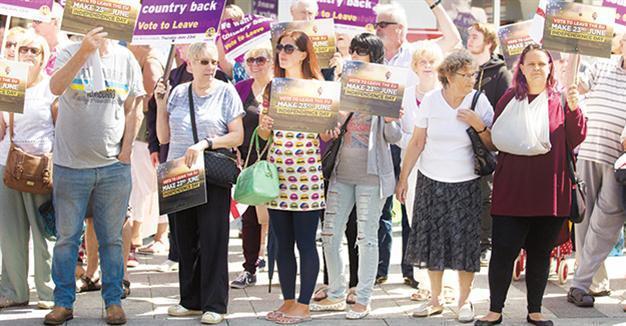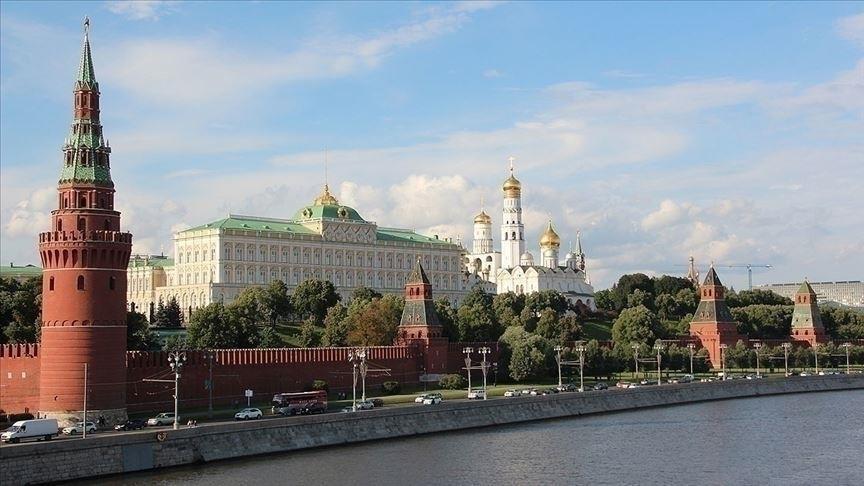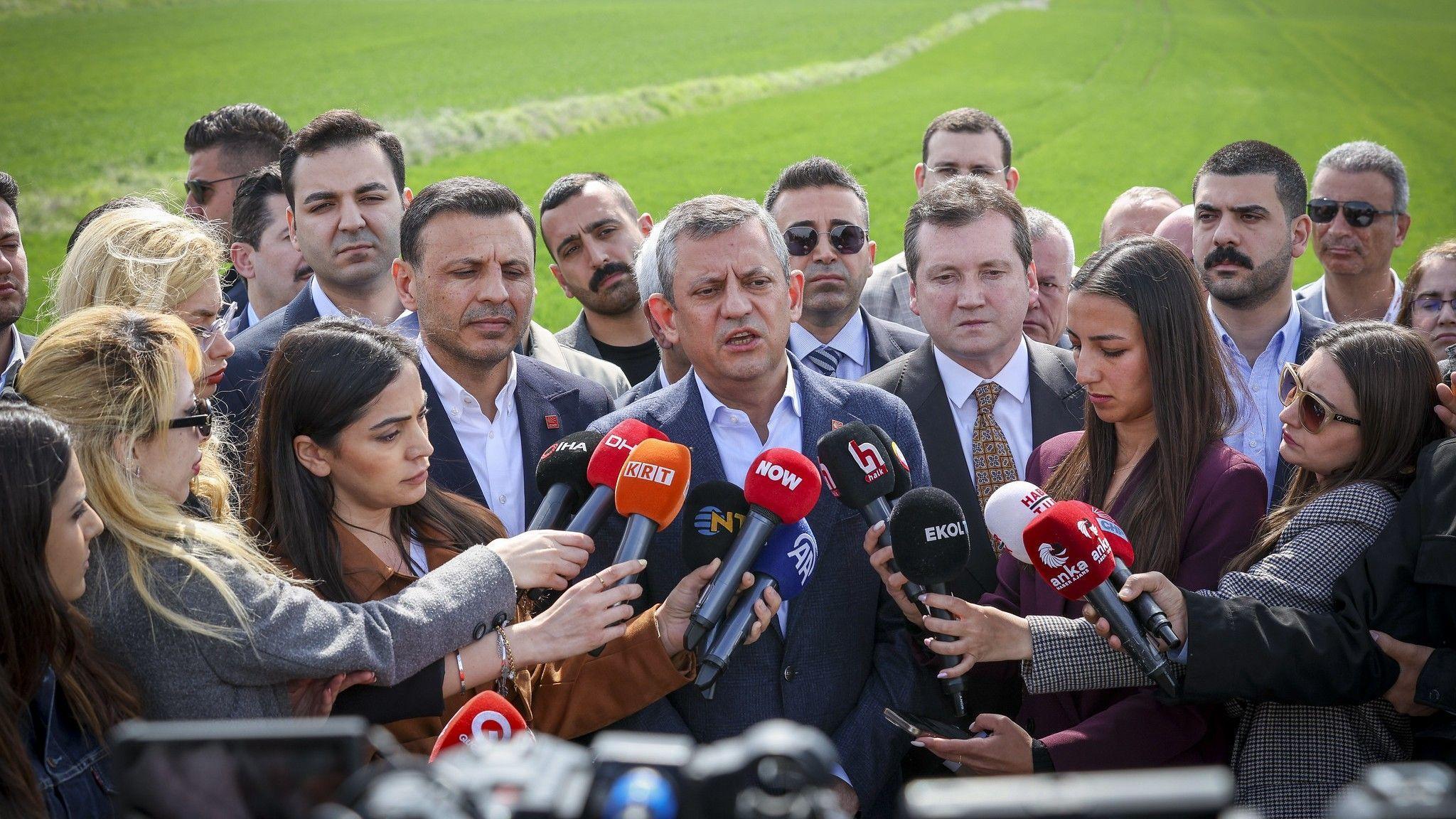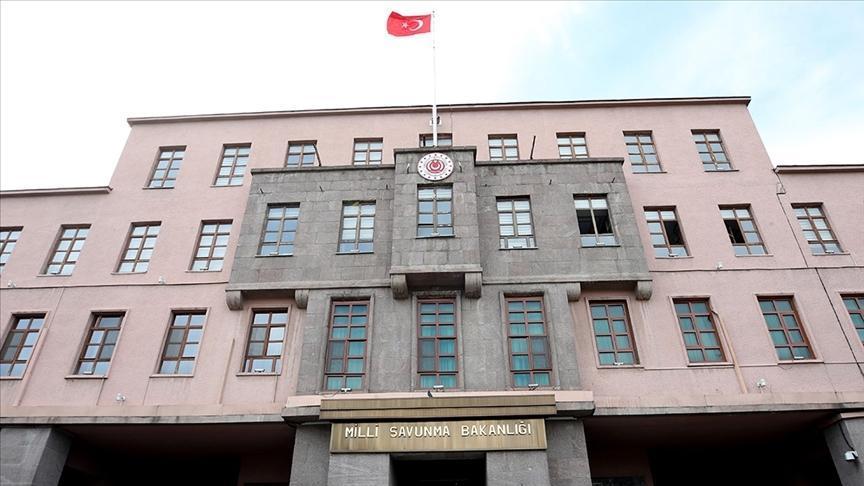Britain goes to the polls for historic vote on EU
LONDON

AFP photo
British voters will head to the polls on June 23 to decide on whether or not they want to remain inside the European Union, a historic referendum which has been long awaited and debated and which also led to the death of a British lawmaker.As a last effort to drive in more supporters to their campaigns, rival sides in Britain’s referendum clashed in a passionate debate to the roars of an audience of 6,000 in a London concert arena on June 21.
The latest polls showed that the difference between the two camps was razor-tight and it was not sure which side would conquer over the other in the referendum.
Panelists locked horns over immigration, as pro-EU London Mayor Sadiq Khan tore into his predecessor, Boris Johnson, a key campaigner on the “Leave” side.
“You’re telling lies and you’re scaring people,” Khan declared, as he brandished a “Leave” leaflet warning that majority-Muslim Turkey could join the EU.
“That’s scaremongering, Boris, and you should be ashamed... you are using the ruse of Turkey to scare people to vote ‘Leave,’” Khan said to cheers from the audience.
Johnson threw the criticism back at Khan, saying the pro-EU side had run a “Project Fear” by warning that leaving the 28-member bloc would damage Britain’s economy.
“They say we have no choice but to bow down to Brussels. We say they are woefully underestimating this country and what it can do,” Johnson said.
Bosses from more than half of Britain’s biggest companies on June 22 urged Britons to vote “Remain.”
Almost 1,300 business executives - including those from 51 of London’s top FTSE 100 listed companies - wrote in a letter to The Times newspaper that Britain leaving the EU could cause an “economic shock.”
The signatories include Virgin boss Richard Branson and U.S. media mogul Michael Bloomberg.
“Britain leaving the EU would mean uncertainty for our firms, less trade with Europe and fewer jobs,” wrote the executives, whose businesses together employ more than 1.75 million people.
No country has voted to leave the EU before and if the British vote to part from the bloc, they will become the first nation to do so.
The prospect of Britain becoming the first state to defect from the EU in the bloc’s 60-year history has raised fears of a domino-effect collapse of the European project.
European Commission President Jean-Claude Juncker warned Britain on June 21 that voting to leave the EU would be “an act of self-harm” that would endanger everything Europeans had worked together to achieve.
“To turn your backs on your neighbors and retreat into isolation would go against everything that Europe and the U.K. stand for,” Juncker said during an address to Greek business leaders in Athens, adding: “To leave would be an act of self-harm.”
Meanwhile, Juncker’s spokesperson said that Juncker would not step down if Britain voted to leave the EU.
“The answer is no,” spokesman Margaritis Schinas said on June 22 when asked if, in the light of media reports about Juncker’s health, he would resign in the event of a “Brexit.”
Former French president Nicolas Sarkozy called June 21 for Paris and Berlin to make a joint push for “a new European treaty” following Britain’s vote.
After talks with German Chancellor Angela Merkel, Sarkozy said: “I told the chancellor that to save Europe, there would have to be a French-German initiative in the coming months, with a new treaty that tells 450 million Europeans that we have heard what they are saying, that we understand how they feel.”
“I think that the chancellor is ready,” he said after a closed-door lunch, adding, “That’s all the better, as there will soon be elections in France that would be followed by polls in Germany.”
The outcome looked deeply uncertain, as a poll by Survation gave “Remain” 45 percent and “Leave” 44 percent, with 11 percent undecided.
The latest surveys were mostly conducted after the brutal murder of Jo Cox, a 41-year-old Labour lawmaker who yhad campaigned to remain in the EU and was shot and stabbed in her northern English constituency on June 16.
Her alleged killer, 52-year-old Thomas Mair, gave his name as “Deth to traitors, freedom for Britain” at his first appearance in court after being charged with her murder.
In an interview with the BBC on June 21, Cox’s widower Brendan said she had been “worried” the debate may have been “whipping up hatred.”
















